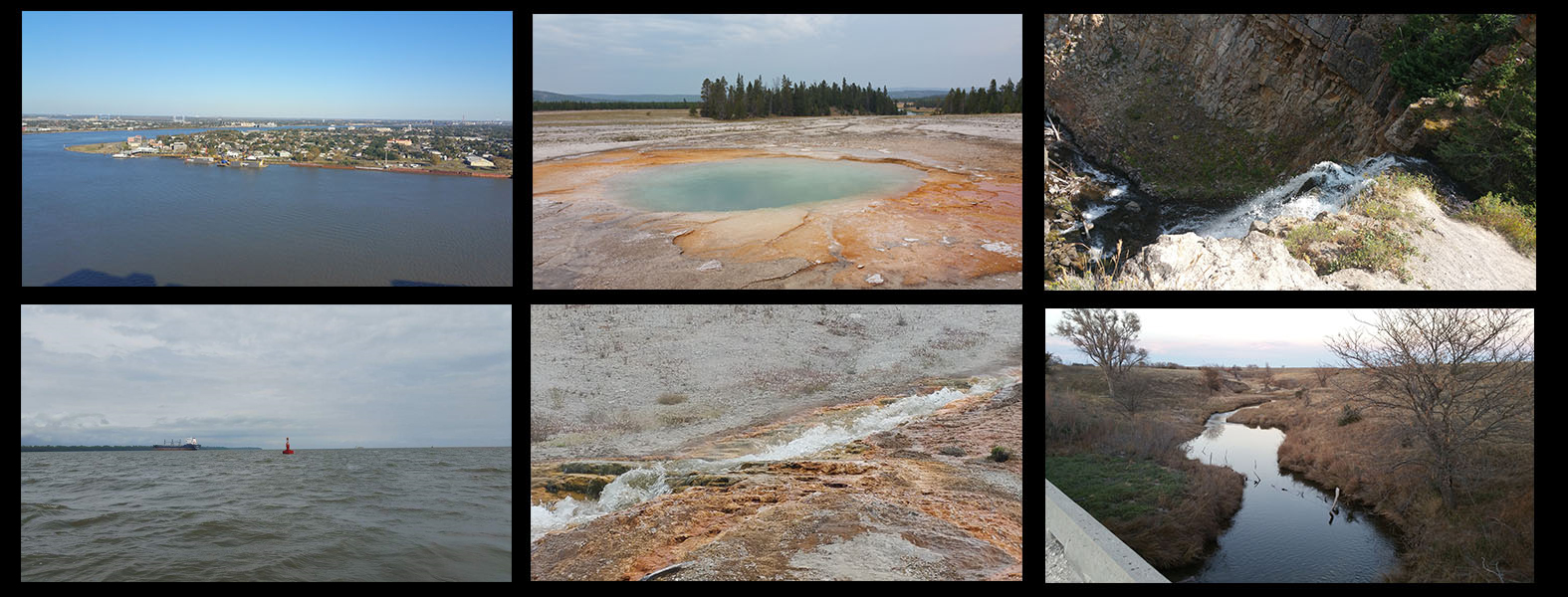Investigating Anthropogenic Perturbations on Carbon Cycling in an Urbanized Tropical Estuary
About the Program | Apply | Project Participants | Research Updates | Summary
NSF- International Research Experience for Students (IRES)
Who: Seeking undergraduate and graduate (MS) students to take part in a program partnering with faculty and students from Fort Hays State University (FHSU) and The University of Delaware (UD), and their collaborators at the Universities in Cameroon.
Scope: Students will participate in research involving a broad range of geoscience and hydrologic studies in a tropical estuary and carbon cycles between sediment, water, biota and the atmosphere. This collaborative project will provide the opportunity for international education, training, and research in marine geochemistry and carbon cycling in the Atlantic coast of Cameroon, West Africa.
Participant Background: Undergraduates in a STEM field (e.g. geosciences, biology, chemistry, etc.) who are curious and interested in an undergraduate research experience (URE) related to water, sediments and CO 2 in the tropics. No prior research experience required but is valued.

Program Overview
Carbon species (CO 2, carbonates, carbonic acid, bicarbonate, organic carbon) in estuaries are an integral part of the global carbon cycle. The US Carbon Cycle Research Program identified carbon contributions from estuaries to the atmosphere as a critical area for research. Much research on carbon cycling has been conducted in estuaries in temperate regions. To date, there are limited studies of carbon cycling in tropical estuaries of Africa and much less is known about how agriculture, urbanization, industrial and shipping activities impacting theses estuaries affect the local and global carbon cycle.
Few environmentally related estuarine (or marine) studies are based in Africa, despite the high population density along the coast and extensive human alteration of estuarine ecosystems. The US Carbon Cycle Research Program identified carbon sources and fluxes to and from estuaries as a critical area for research because estuaries link the terrestrial – ocean – atmospheric carbon reservoirs. Yet, the role of estuaries in local, regional or even global carbon cycles from tropical estuaries in sub-Saharan Africa (which receive far greater amounts of organic carbon and pollutants compared to temperate and high latitude estuaries) is unknown.
One of the goals of the NSF-IRES program is also to attract and retain underserved, underrepresented and minority students into STEM, and provide mentoring to boast students’ self-confidence, and improve the independent and critical thinking skills necessary to excel in a research and careers in the geosciences.
Project Information
Nine undergraduates and 3 graduate (MS) students will be selected to travel to Cameroon to conduct hands-on, field-based research focused on investigating the effects of agriculture, urbanization, industrial and shipping activities on carbon cycling in the Douala Estuary. The objectives are to (1) document pollution in the water column and sediments and (2) assess if and how the human activities and pollution affect carbon dioxide production, distribution and degassing in the water column and sediments.
Applicants must meet the following minimum expectations:
- be a citizen or permanent resident of the United States. The National Science Foundation, which supports the program, requires students to be US citizens, US nationals, or permanent residents of the US.
- be registered in a degree program leading to a baccalaureate or graduate degree
- be able and willing to register and participate in a pre-travel preparation course and/or meetings at FHSU or UD
- have/or be able to obtain a valid passport and immunizations for international travel
- be able and willing to work in a developing country and tropical environments (identify additional criteria such as working conditions, health requirements, etc.)
- have an interest in or background in STEM specifically physical science and geoscience fields (geology, aqueous, geochemistry, hydrology, marine sciences, physical geography, environmental science.geology, bio-geoscience, etc).
- have scientific curiosity and motivation
- be able to and willing work in open (sea) water
- have an interest in International travel (travel expenses and accommodation for participating students will be covered during the research phase of the project).
Funding Agencies

The National Science Foundation, IRES
OISE
EPSCoR
GEO
Investigators and Institutional Partners
US- Dr. Henry Agbogun (Principal Investigator, current) - Fort Hays State University, Dept. of Geosciences
- Dr. Hendratta Ali, (Principal Investigator, past) - Fort Hays State University, Dept. of Geosciences
- Dr. Eliot Atekwana, (Principal Investigator) - University of California, Davis, Dept. of Earth and Planetary Sciences
- Dr. Njilah Isaac (Collaborator) - University of Yaoundé, Dept. of Earth Sciences
- Dr. Raoul Nkoue (Collaborator) - University of Douala, Dept. of Geology
For questions, contact:
Dr. Henry Agbogun, FHSUDr. Eliot Atekwana, UC Davis
Please go to the Apply link for additional information about applying for the program.